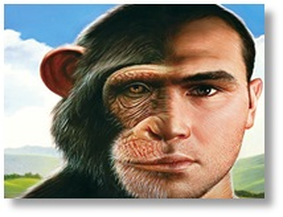According to Merriam-Webster, a dictator is “one holding complete autocratic control: a person with unlimited governmental power.” Another definition they list is “one ruling in an absolute and often oppressive way.”
The general idea is that someone makes decrees, and there’s really nothing you can do about it. At least not without potential great peril to your life.
How does this relate to the Christian worldview? Well, a good chunk of the general public is under the impression that science is all about determining the truth about the world we live in, whereas the Bible is just a religious text conveying various people’s thoughts on how to live, but shouldn’t be relied upon regarding matters of science. That’s a very common misconception, and it really taints how people view the Bible and often leads them to write it off as anything to be taken seriously.
They also tend to see science as being “black & white.” It is what it is. In essence, scientists go into a laboratory, do experiments, and come out saying something like, “We did all the tests and here are the results. It is what it is, whether we like it or not. This is not biased, we’re just reporting the truth.”
As a semi-humorous side note, I sometimes tell my audiences that I am funny. Then I say that I am telling them that because they would never figure that out on their own! 😂 In a somewhat similar vein, when someone tells you they are trustworthy, it may be because they really aren’t, and they are trying to convince you otherwise.
We’re asking if science is a dictator, making decrees that we have to live with whether we like it or not. Here’s why I say, “No.”
I say, “No” because science can’t be a dictator. It’s impossible. Why? To be a dictator, you have to make dictates! And guess what? I’ve said it many times— science doesn’t say anything! Nothing! Facts don’t speak for themselves. Guess who says things? Scientists! Scientists say things, but the facts they observe are silent. How do scientists determine what they will say after reviewing the facts from their observations? They absolutely MUST use what they already believe to come to some conclusion about the new facts they are considering. What they already believe is called their worldview or their “starting point” (sounds like a good name for a ministry!). You have to use what you already believe to evaluate anything new. Certainly, you might change your views and use those for future evaluations, but you are always using what you currently believe to pronounce your conclusions.
We’d also like to believe that personal preferences don’t come into play. That is, a scientist will make their determinations completely independent of what they believe or wish to be true. Sadly, that is not the case. The phrase, “Follow the science,” was extremely common when the COVID-19 pandemic first hit back in 2020. We were told the world’s leading experts had studied what was happening, and then we were given “marching orders.” If you dared to question or resist, life became much more uncomfortable for you. Not only because of the “experts” and those in governmental authority, but also from the general public, many of whom unquestioningly followed in lock-step and shamed (and sometimes physically threatened) all those who didn’t immediately, upon being told to jump, ask, “How high?” In light of this, it’s interesting to note an article headline from WebMD (one of the most prestigious medical sources):
Year of COVID: Everything We Thought We Knew Was Wrong
Wait, what happened to “follow the science”? I don’t want to go down that rabbit hole right now.
Regarding biases, consider the following quote from someone who was one of the world’s leading evolutionists, Steven J. Gould:
“But I would also reject any claim that personal preference, the root of aesthetic judgment, does not play a key role in science. True, the world is indifferent to our hopes – and fire burns whether we like it or not. But our ways of learning about the world are strongly influenced by the social preconceptions and biased modes of thinking that each scientist must apply to any problem. The stereotype of a fully rational and objective ‘scientific method’, with individual scientists as logical (and interchangeable) robots, is self-serving mythology.
Here’s a very telling quote from Chinese paleontologist Jun-Yuan Chen:
“In China we can criticize Darwin, but not the government; in America, you can criticize the government, but not Darwin.”
Here’s a quote from the scientist who (sarcastically) gave us the term, “The Big Bang,” Sir Frederick Hoyle. He was one of the world’s leading astronomers and mathematicians:
”Science today is locked into paradigms. Every avenue is blocked by beliefs that are wrong, and if you try to get anything published by a journal today, you will run up against a paradigm, and the editors will turn it down.”
So, the next time you read something from a science magazine or watch a YouTube video containing scientific pronouncements, always think critically about what is being claimed and don’t be intimidated simply because “it’s science”!









